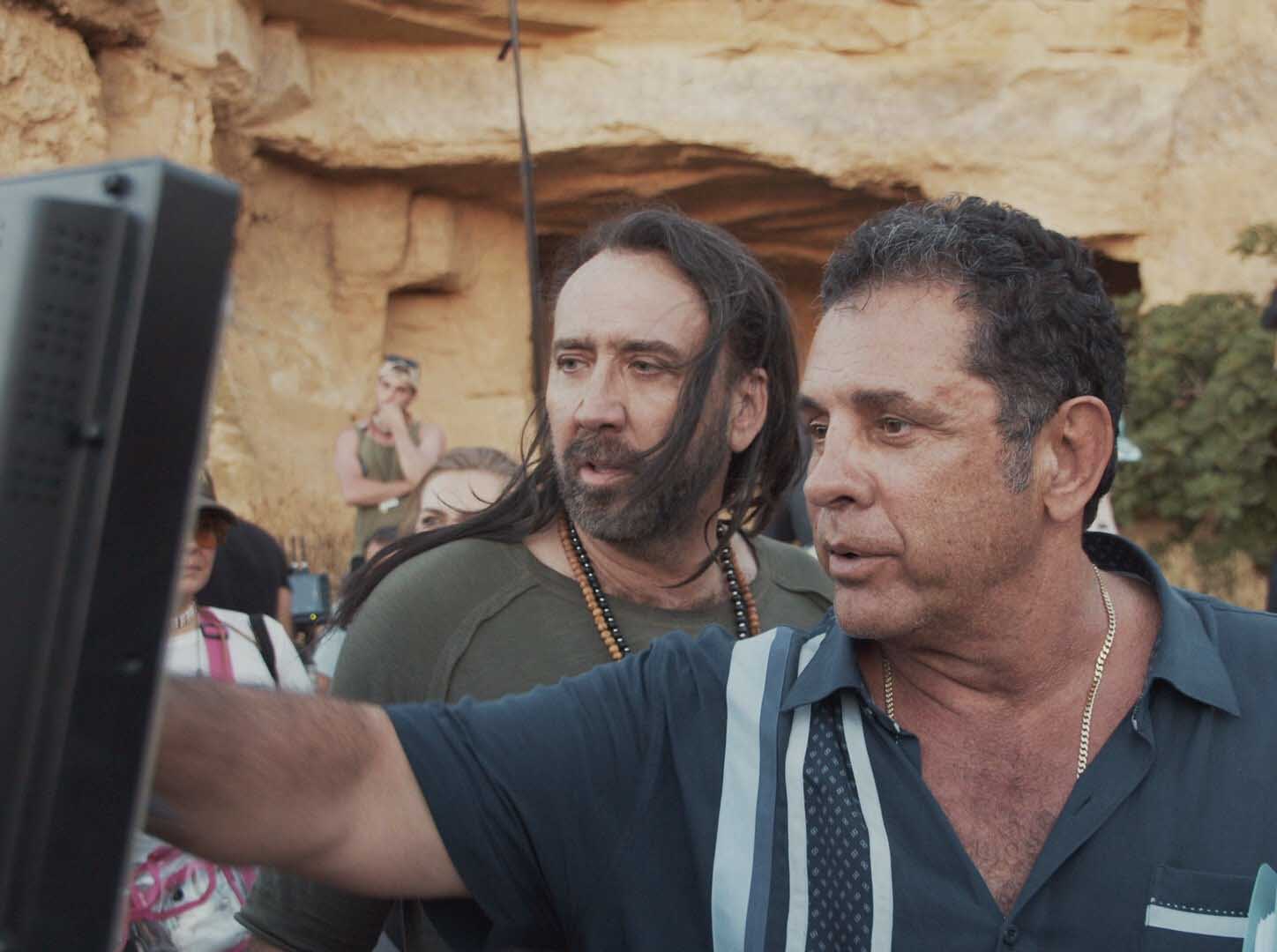Auditor-general in the cross hairs in latest court case over film incentive scheme
The continuing saga of Jiu Jitsu entered a new phase last month with the filing of a defamation suit against the Cyprus government, the Audit Office and auditor-general Odysseas Michaelides personally, among other defendants.
This is in addition to legal proceedings to recover money which the film’s investors claim to be owed under the government’s ‘cash rebate’ scheme.
Jiu Jitsu, a sci-fi/action film starring Nicolas Cage, was the first major beneficiary of the scheme in 2019 – but the rebate, amounting to around €8 million, has never been paid, even though the film has since come out and become a hit on Netflix.
One major factor in the apparent collapse of the deal was the publication of a report by Michaelides on March 26, 2021, in which the Audit Office cast aspersions both on the scheme in general and the Jiu Jitsu producers in particular. Two of those producers, Dimitri Logothetis and Chris Economides, are the two main claimants in the libel case (case no. 1035/2021) filed by lawyer Yiannos Georgiades last month.
The 2021 report came a few weeks after two Sigma TV reporters (who are also among the defendants) suggested a link between Jiu Jitsu and the now-discredited ‘golden passport’ scheme. However, the Audit Office made no mention of such passports – and, it must be emphasised, found no evidence of dishonesty.
“Obviously not,” Audit Office spokesman Marios Petrides (who is also among the defendants in his personal capacity) told the Cyprus Mail. “For a start, we’re not an ethics committee that gets to decide if someone is honest or not.”
If the claimants feel they’ve been libelled as crooks, “it certainly wasn’t by us”.
The report, says Petrides, was entirely concerned with studying the cash rebate scheme and identifying weaknesses and possible risks, thereby “giving the executive authority an opportunity to take corrective measures in the public interest,” he adds, reading from the document itself.
The claimants, unsurprisingly, view things differently. Their statement of claim notes, for instance, one of the findings in the auditor-general’s report, that “there was direct communication between a specific producer and the minister of finance, in respect of the provisions of the scheme and the changes to it”.
This, they say, “was understood to mean and/or implied directly and/or indirectly that a particular producer, i.e. Claimant 1 [Logothetis], made a secret and/or irregular and/or fraudulent direct communication with the minister of finance” in order to secure changes that would serve his own interests.
There are many such examples in the statement of claim. The producers take particular exception to a number of cartoon-like drawings scattered throughout Michaelides’ report.
In one case, for instance (p. 23 of the report), the fact that the president of Cipa (Cyprus Investment Promotion Agency) was also a partner in the accountancy firm (KPMG) charged with auditing film productions is accompanied by a cartoon showing KPMG clients holding briefcases – implicitly full of money – then climbing a dais, high-fiving the Cipa president, and walking away with a certificate of approval.
This, says the claim, clearly implies “that the claimants approached and/or deceived and/or bribed public officials and/or the president of Cipa at the time in question”, and that they are therefore “fraudsters and/or thieves and/or despicable and/or immoral persons”.
One might counter that the report is speculative. The cartoons, for instance, aren’t intended to depict something which the Audit Office contends actually happened. Rather, they depict a potential risk which could have happened.
The problem is that, when juxtaposed with discussion of actual projects like Jiu Jitsu, these general warnings may appear as innuendos against specific persons.
The statement of claim also includes a number of instances where Jiu Jitsu was attacked directly. At one point, the report notes that “82 per cent of the expenses for which a refund was requested relates to payments to producers and their companies”, which (say the claimants) implies deception and dishonesty on their part.
Both the report and public statements by the defendants also attack the quality of Jiu Jitsu as a movie, pointing out its low ratings at online film resources like Rotten Tomatoes.
The producers take exception to this, saying it implies that “the claimants produce and/or constitute low-quality productions with the purpose and/or effect of deceiving and/or taking from Defendant 1 [the government], and/or are thieves and/or fraudsters.”
It does seem a slightly unfair criticism, both because an action movie doesn’t have to be high art – indeed, its success on Netflix may be largely because people wanted something mindless during Covid – and because we’re talking about a rebate scheme solely intended to promote Cyprus as a filming location.
It’s true that the government doesn’t actually invest any money in the film itself, under the scheme (it merely returns a percentage of the ‘eligible spend’ that’s shown to have been disbursed in Cyprus), so it shouldn’t be concerned with its quality. Petrides points out, however, that the scheme explicitly aimed to fund “quality productions”, so cinematic excellence isn’t irrelevant as a yardstick.
Once again, it seems, a general criticism of the scheme ends up casting aspersions on those who invested under it. Shouldn’t we be welcoming investors rather than driving them away, especially in a time of crisis? After all, the fact that so many European countries run film rebate schemes strongly suggests that they’re making money out of it.
“The public interest is not measured in money,” replies Petrides. “The public interest is measured in the law being enforced.” He offers an analogy: “It’s beneficial to our country for money to arrive from abroad and be deposited in Cyprus banks, correct? Yes – but if that money were the product of money laundering? Wouldn’t we care?”.
Whether the claimants were defamed is a matter for the courts, of course. But the publication of the report – with its withering tone, and strong disapproval of the scheme in general – may have made it politically impossible for the ministry to continue with Jiu Jitsu (or Man of War, another action film which Logothetis was also planning to shoot in Cyprus). The rebate scheme is still in place, but the idea of ‘Olivewood’ has been toned down, and no big-name productions have been announced in the years since.
That’s an unfortunate outcome, whichever way you slice it.








Click here to change your cookie preferences